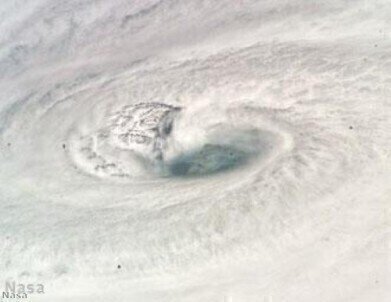-
 Hurricanes could be reduced by higher levels of sooty aerosol air pollution
Hurricanes could be reduced by higher levels of sooty aerosol air pollution
Air Clean Up
Reductions in air pollution causes hurricanes, suggests Met Office
Jun 26 2013
Whilst focus has been on reducing the levels of air pollution currently being produced for the last few years, new research has suggested that the high levels of atmospheric pollution have led to a reduction in the number of hurricanes forming. The Meteorological Office has released information that shows that the intensity and frequency of North Atlantic Hurricanes can be affected by air quality.
Research released by the Met Office has suggested that the frequency of North Atlantic hurricanes and their level of destruction may be directly related to air quality. Lower levels of pollution within the atmosphere are more likely to result in a large and damaging hurricane, as well as a higher rate of tropical storm occurrences.
The research suggests that sulphate aerosols created by car exhausts, factory chimneys and power stations - among other causes - could actually have attributed to fewer deadly hurricanes throughout the 20th Century.
According to the Met Office whilst greenhouse gas emissions have negative effects, sooty aerosol pollution has actually had a positive impact. These aerosols are airborne liquid droplets and actually work to brighten clouds. This in turn leads to more sunlight being reflected away from the earth, resulting in cooler ocean temperatures. This process also has effects on the circulation patterns of the ocean, which - when coupled with lower temperatures - reduces the number of hurricanes that are able to form.
Halting the production of these aerosols can affect water temperature and circulation, ultimately allowing a higher volume of hurricanes to form; more of which could be highly-destructive. Ongoing measures to reduce all forms of air pollution since the 1980s has led to fewer aerosols being present in the atmosphere, which could be at least partially responsible for the increase in giant storms and their ferocity.
Doctor Nick Dunstone, lead author of the research and Met Office climate prediction scientist, said: "Industrial emissions from America and Europe over the 20th Century have cooled the North Atlantic relative to other regions of the ocean. Our research suggests that this alters tropical atmospheric circulation - making it less likely that hurricanes will form.
"Since the introduction of the clean air acts in the 1980s, concentrations of aerosols over the North Atlantic have reduced and model results suggests that this will have contributed to recent increases in hurricane numbers. On the other hand, the reduction of aerosols has been beneficial for human health and has been linked to the recovery of Sahel rains since the devastating drought in the 1980s."
Events
Apr 22 2024 Hannover, Germany
Apr 23 2024 Kuala Lumpur, Malaysia
Apr 24 2024 Sao Paulo, Brasil
May 05 2024 Seville, Spain
May 13 2024 Munich, Germany













